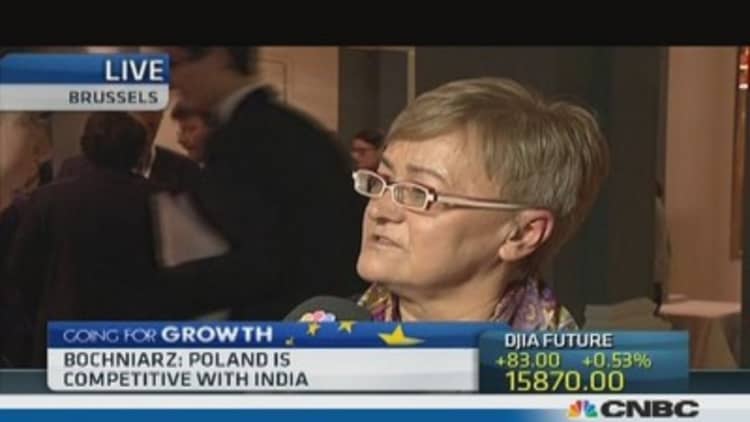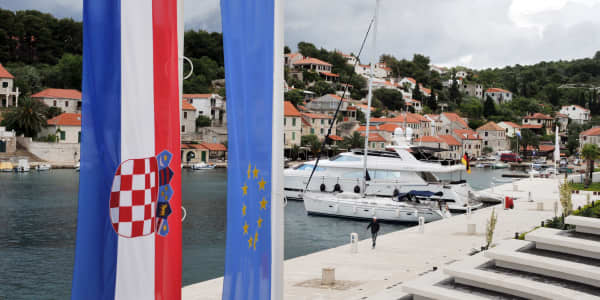Eastern European countries Poland and Romania were some of the world's "rising stars" over the past decade, according to a new ranking which measures economic and social progress of countries, while some euro zone crisis countries slipped down the list.
The study by PwC (PricewaterhouseCoopers) - which has tracked countries' progress between 2000 and 2012 - looks at a range of factors needed for development such as health and education, communications technology, political, legal and regulatory frameworks and environmental sustainability.
(Read more: 'Tiger' of Eastern Europe is waking up: Romanian PM)
The ranking of 30 countries is topped by Sweden, Switzerland and Singapore, but some eastern European countries showed particularly strong rises and were dubbed "rising stars" by PwC.
Poland climbed six places in 2012's study, compared with its ranking in 2000, with Romania jumping 13 places since 2000.
In the last few years Poland has become the fastest growing economy in the EU and in 2009 it was the only EU country to avoid a recession.
While its gross domestic product (GDP) grew by 4.5 percent annually from 2004-2008, this slowed to 1.8 percent between 2009 and 2013.
(Read more: Poland'sproperty developers reach for the sky)
Poland has strong institutions and its living standards are gradually converging towards the European standard, but it still suffers from income disparities and rising unemployment, according to the World Bank.
Following the global financial crisis, Romania – which also joined the EU in 2007 -- undertook a series of much-needed reforms.

Its GDP grew by 3 percent from 2004-2008 and 3.1 percent from 2009-2013. Nonetheless it still faces challenges, such as achieving steady economic growth and improving living standards.
"To graduate to the advanced economy club, it is not enough just to do well on traditional economic indicators such as GDP growth and inflation. Both governments and business investors should pay attention to [a] broader range of measures," PwC said in its report.
Meanwhile, the euro zone crisis economies – Italy, Spain, Portugal and Greece – have seen a marked fall in their rankings since the onset of the global financial crisis in 2007.
(Read more: Too soon todeclare euro zone victory: Draghi)
These were the peripheral euro zone countries worst hit by the sovereign debt crisis, as their large national debts buckled under the pressures.
Italy, Spain and Portugal were all in the bottom five of 2012's rankings, alongside their eastern European counterparts, while Greece dropped out of the top thirty countries altogether.
With regards to Europe's more northern economies, Germany, the Netherlands and Finland all ranked in PWC's top 10 in 2012. Germany and Finland climbed two spots since 2000, while the Netherlands fell two places.




